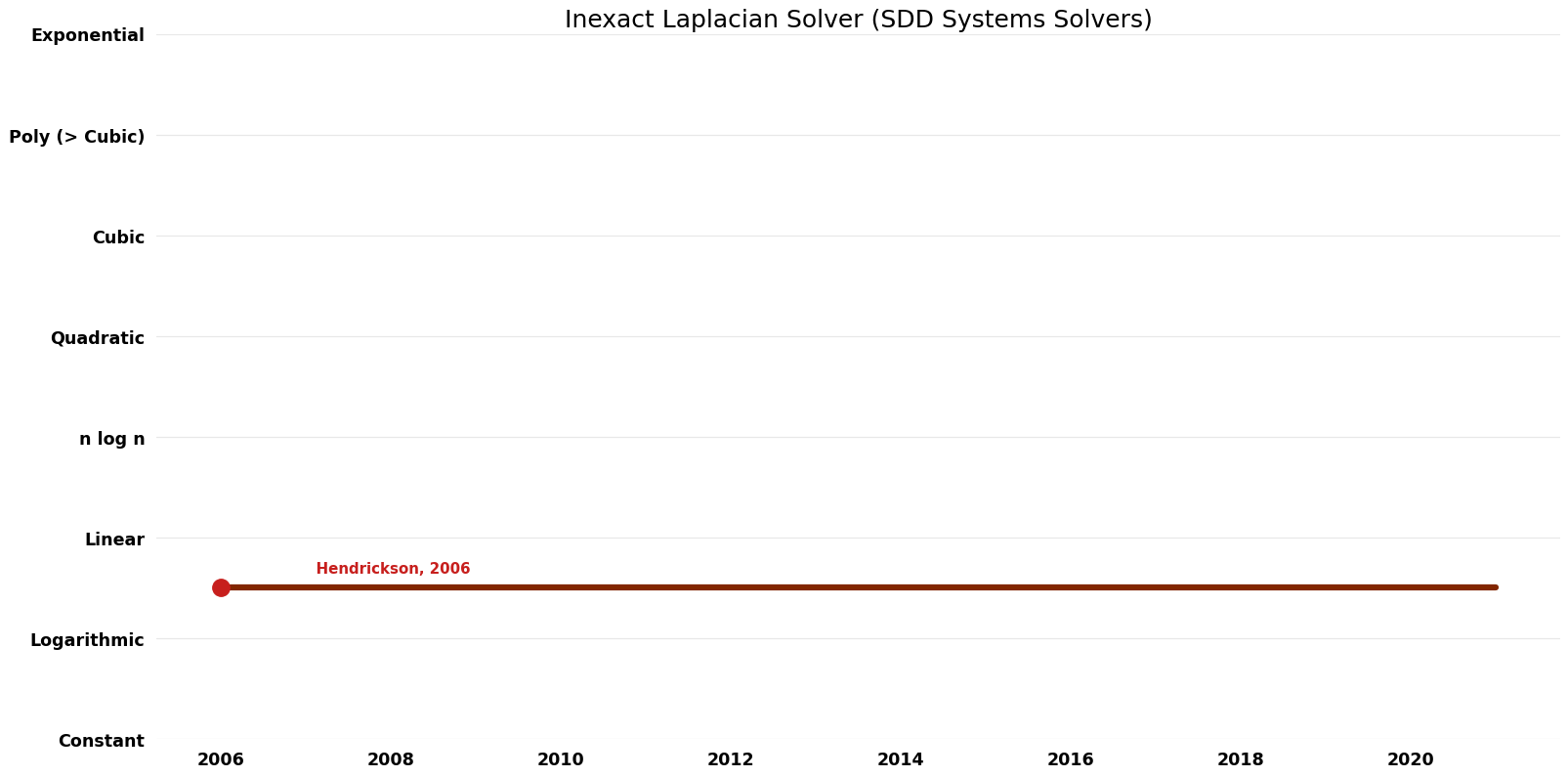Inexact Laplacian Solver (SDD Systems Solvers)
Revision as of 11:20, 15 February 2023 by Admin (talk | contribs) (Created page with "{{DISPLAYTITLE:Inexact Laplacian Solver (SDD Systems Solvers)}} == Description == This problem refers to solving equations of the form $Lx = b$ where $L$ is a Laplacian of a graph. In other words, this is solving equations of the form $Ax = b$ for a SDD matrix $A$. This variation of the problem permits some error. == Related Problems == Related: Exact Laplacian Solver == Parameters == No parameters found. == Table of Algorithms == {| class="wikitable sort...")
Description
This problem refers to solving equations of the form $Lx = b$ where $L$ is a Laplacian of a graph. In other words, this is solving equations of the form $Ax = b$ for a SDD matrix $A$.
This variation of the problem permits some error.
Related Problems
Related: Exact Laplacian Solver
Parameters
No parameters found.
Table of Algorithms
| Name | Year | Time | Space | Approximation Factor | Model | Reference |
|---|---|---|---|---|---|---|
| Spielman, Teng | 2004 | $O(m log^c n)$ | $O(n)$ | \epsilon | Deterministic | Time |
| Vaidya | 1990 | $O(mn^{({3}/{4})$}) | $O(n)$ | \epsilon | Deterministic | |
| Gremban; Miller; Zagha | 1995 | $O(n^{2})$ | $O(n^{2})$ | ? | Deterministic | Time & Space |
| Bern; Gilbert; Hendrickson | 2006 | $O(n loglogn)$ | Exact | Deterministic | Time | |
| Boman; Hendrickson | 2003 | $\tilde{O}(mn^{({1}/{2})})$ | \epsilon | Deterministic | Time | |
| Boman; Chen; Hendrickson; Toledo | 2004 | $O(n log({1}/ϵ)$ ) | $O(n)$ | \epsilon | Deterministic | Time |
| Koutis; Miller and Peng | 2010 | $\tilde{O}(m log n)$ | $O(n)$ | \epsilon | Deterministic | Time |
| Koutis; Miller and Peng | 2011 | $\tilde{O}(m log n)$ | $O(n)$ | \epsilon | Deterministic | Time |
| Blelloch; Koutis; Miller; Tangwongsan | 2010 | $O(n logn)$ | m + $O(n/log n)$ | ? | Deterministic | Time & Space |
| Briggs; Henson; McCormick | 2000 | $O(n^{1.{2}5} loglogn)$ | Exact | Deterministic | Time | |
| Kelner; Orecchia; Sidford; Zhu | 2013 | $O(m log^{2} (n)$ loglogn) | $O(n)$ | \epsilon | Deterministic | Time |
| Lee; Peng; Spielman | 2015 | $O(n)$ | $O(n)$ | The sparse Cholesky decomposition is a 2-approximation | Deterministic | Time |
| Daitch; Spielman | 2007 | $O(n^{5/4} (log^{2} (n)$ loglogn)^{3/4} log({1}/ϵ)) | $O(n)$ | \epsilon | Deterministic | Time |
